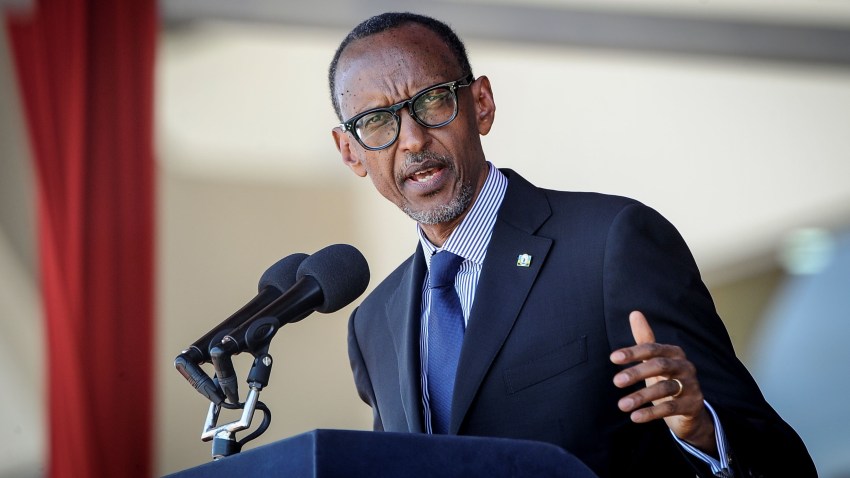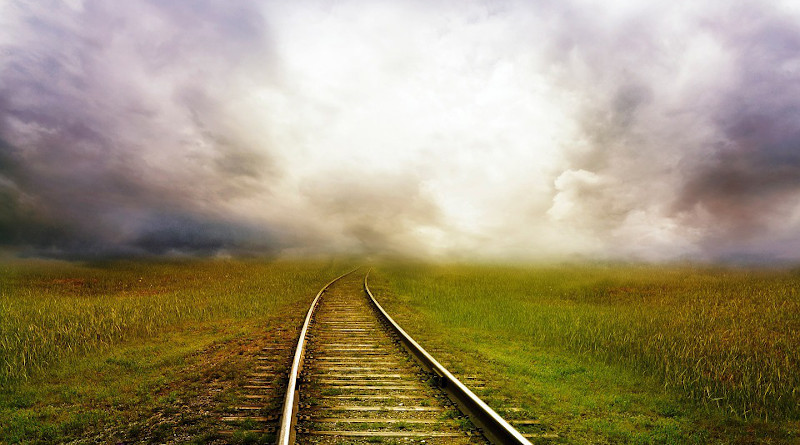Does the US want to end the Algerian-Moroccan conflict?
July 12, 2024

A picture taken from the Moroccan region of Oujda shows Algerian border guards patrolling along the border with Morocco on November 4, 2021 [FADEL SENNA/AFP via Getty Images]
by Nizar Boulihya
Two years ago, Blinken appealed to Algeria from the capital, Algiers, to limit ties with Russia and look to improve relations with neighbouring Morocco, but neither the US Secretary of State nor his administration did enough to urge the Algerians and Moroccans to put an end to the relatively long diplomatic rift between their countries. This has raised a major question mark about what Washington really wants in North Africa, in particular?
Perhaps many would say it certainly wants to strengthen its presence in that part of the world, protect its interests, on the one hand, and restrict the growing Russian and Chinese infiltration of the region, on the other. Does maintaining the current situation between the two largest countries in that region, i.e., the situation of silent conflict that is open to all possibilities, seem appropriate and conducive to achieving that goal? There is no doubt that the two Maghreb neighbours have been competing fiercely for several decades, but are they ultimately chasing an illusion and a mirage?
READ: Israel reiterates recognition of Morocco sovereignty over Western Sahara, after Netanyahu contradiction
To some, it might seem like that, but others might consider that picture a bit exaggerated. They may not initially see that there is a race, neither apparent nor hidden, between the two countries, or rather a competition that, even if it is intense and violent at times, remains normal. However, the question that arises in this case is: Why do Moroccans and Algerians spend millions of dollars annually to buy and accumulate huge arsenals of weapons? Why do they travel around the world in an effort to strengthen their relations with major powers and expand and diversify their circle of partnerships and alliances? Doesn’t at least part of all of this lie in the twin brothers, as the Moroccan King once described Algeria and Morocco, seeking to win the leadership race in the region? The Algerians would surely reply to this by saying, “Who is more worthy than us?” Meanwhile, the Moroccans would say “Who is more worthy than us?” It is clear that the way in which this decades-long debate between the two major Maghreb countries will be resolved, over which of them seems more worthy of leading the region is open to many theories.
In this regard, it was not surprising that, a few days ago, an Algerian newspaper believed that the matter had been completely resolved after the Americans forcefully became involved. The local Algerian newspaper, Al-Shorouk, said in an article published on Saturday that Washington chose to award that honorary crown, which has always fuelled conflicts and hostilities between the two neighbours, to Algeria. How did that happen? All the newspaper said was that the operation was executed through the congratulatory message that the American President addressed to his Algerian counterpart on the occasion of Independence and Youth Day, last Friday, and included the following, “Algeria’s regional leadership has played a critical role in solving the world’s most pressing problems, such as transnational crime, extremism, instability and conflict.” This means, according to the original source, that the phrase “Algeria’s regional leadership” indicates that Washington believes and operates based on the logic that Algeria is a leading country in its regional environment and that this region can be controlled from its borders extending from the Maghreb region in the north to the heart of the African continent in the Sahel region in the south, and in the Mediterranean basin from its far east to its far west, with maritime borders over 1,200 kilometres. However, do the Americans really think that way? Do they look at Algeria through the lens presented by that newspaper? What does regional leadership refer to apply to? What are the standards that allow a country to possess regional leadership? Is it military, economic, geographic or political weight? Or is it all of them together?
Biden’s message was limited to referring only to what it called Algeria’s decisive role “solving the world’s most pressing problems” and the Palestinian issue, for example, was not at its forefront, nor was the most prominent and important regional file that continues to hinder the achievement of rapprochement and integration between the Maghreb nations, which is the Sahara file. On the other hand, the American administration chose only to refer to these problems in a short phrase by saying, “transnational crime, extremism, instability and conflict”. This means that the Americans view regional leadership in a functional manner with a very fragmented and limited view, that hardly deviates from the scope of their immediate and urgent interests in the region. They are not, as the newspaper might imagine, complimenting Algeria for free, as much as they are aiming to give it responsibility for assuming a role that serves its goals and projects.
READ: Algeria’s support for Polisario pushed Morocco to normalise ties with Israel, says former MP
They definitely know the extent of the Russian and Chinese infiltration in that particular country, and they appreciate its potential consequences and repercussions in the region. When their Secretary of State, Antony Blinken, met the Algerian President more than two years ago, he said to reporters immediately after the end of that interview, “the Ukraine conflict should cause all countries to re-evaluate relations with Russia and express their support for the territorial integrity of other states,” adding, “I know that that’s something Algerians feel strongly about.” It was clear that the most important point they were keen to focus on in this matter was calling on Algeria to pump larger amounts of energy into global markets to compensate for the shortfall caused by the Western blockade of Russia. They knew, of course, that this would strengthen Algeria’s position internally and externally, but was that offer a poisoned gift?
There is no doubt that the BRICS countries’ rejection of the Algerian request to join that group may reflect that, to some extent, but the statement by the Russian Foreign Minister, which preceded the rejection by a few days, in which he said that the criteria for expanding BRICS took into account the weight and status of the state and its position on the international arena, may have disrupted many of Algeria’s calculations and may have given Washington more room for manoeuvring and allowed it to get closer to Algeria. Was the implicit agreement between the two sides that the Americans would maintain the existing situation in the region, and not go too far in perpetuating the Trump administration’s announcement of its recognition of the Moroccan Sahara? It is clear that the current American administration preferred to play on both the Moroccan and Algerian sides, as official delegates often do not hesitate to give conflicting statements in the two capitals and try to hold the stick from the middle by talking about full support for the UN’s efforts to solve the Sahara problem. Did the Americans try to use their influence to push the two countries toward reconciliation? It is not certain that they did. The magic word remains the American interests in the region, and we are not yet certain whether preserving them depends on the return of warmth to Algerian-Moroccan relations.
OPINION: Where could the escalation between Algeria and Morocco lead?
This article first appeared in Arabic in Al-Quds Al-Arabi on 9 July 2024













